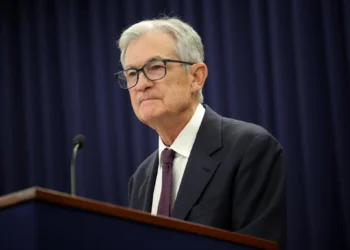LONDON (Realist English). Political and macroeconomic instability has wiped out more than $320bn in profits for the world’s largest public companies since 2017, according to new research from EY-Parthenon, the strategy division of Big Four consultancy EY.
The study analyzed nearly 3,500 listed companies with annual revenues above $1bn and found that one in four suffered a 5% or greater decline in EBITDA margins during the past three years — a period marked by inflation shocks, Russia’s war in Ukraine, the Israel-Hamas conflict, and Donald Trump’s return to the U.S. presidency.
“After years of cheap money and relative geopolitical stability, a wave of macro shifts — from trade tensions to global conflicts — now means that government policy and global events are having a greater impact on value and profits than in many decades,” said Mats Persson, EY-Parthenon’s UK head of macro and geostrategy.
The research shows that geopolitical and macroeconomic events increasingly drive market valuation. Over the past three years, about 40% of daily movements in the FTSE 100 occurred on days coinciding with major political or economic developments.
China recorded the largest profit shock: among 833 Chinese companies surveyed, nearly 40% saw a combined loss of $73bn in EBITDA, with the steepest declines in the real estate, steel, and construction sectors. The losses highlight the impact of Beijing’s domestic policy tightening and broader market fragility.
In contrast, UK companies showed greater resilience. Of the 100 UK-based firms meeting the revenue threshold, only 14 reported significant EBITDA margin losses, totaling $2.5bn over the past three years. Among those maintaining or improving profitability were Next, Croda, Rio Tinto, and Spirax-Sarco Engineering.
Globally, only 10% of companies that were in the top quartile for EBITDA margin in 2014 managed to sustain that performance through to 2024 — underlining how few businesses have adapted successfully to the new macroeconomic landscape.
U.S. outperformers include Caterpillar, UPS, Pfizer, Merck, and Johnson & Johnson, each of which improved their profit margins above sector averages. These companies, Persson noted, succeeded by diversifying portfolios, tightening cost controls, and adapting governance to account for political risk and policy shifts.
“The new environment has created clear winners and losers,” Persson said. “The businesses that protected or expanded margins did so by actively reshaping how they operate in a fundamentally different world.”


















